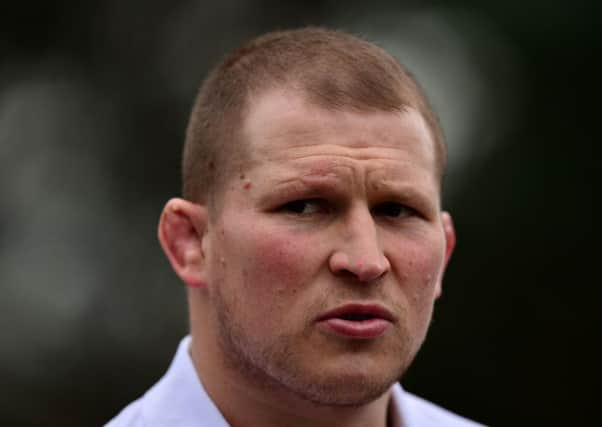Scots a poor second as Jones hails '˜easy' win


That translates into six matches or 480 minutes of rugby since Simon Danielli crossed the English line in this fixture back in 2004 (504 minutes if we want to be accurate since Danielli didn’t score in the final minute of the match). Had he known it would take at least 14 years (when England return in 2018) before anyone repeats the feat he might well have grabbed a brace while he was at it.
In fact Scotland’s lightweight backs never looked like breaking free of their muscular English jailers and their inability to hold on to the ball in contact was crucial in releasing English pressure, a point underlined by coach Vern Cotter.
Advertisement
Hide AdAdvertisement
Hide Ad“Gee, it’s frustrating,” he said in the post-match post-mortem.
“We probably weren’t accurate enough. We created opportunities, enough to win the game, and we just weren’t accurate enough at keeping the ball. Aerially we need to get better. It’s a frustrating game. The positive things is that we can put a lot of things right very quickly.”
There was no lack of effort from the home team – late in the second half England flanker James Haskell was absolutely halved by Richie Gray and Stuart McInally working in tandem – but the match in general was as ugly as it was ordinary, with too much kicking and too few skills.
England coach Eddie Jones called his side’s second-half performance “commanding” and even claimed that the win was “easy”. Certainly the gap between the two teams was not nearly as close as the final score suggests.
Most of the second half was played deep inside Scottish territory, the home team unable to do anything very much with the scraps of possession that came their way, which must have been a concern to Cotter. “I think as a team we can get so much better,” the Kiwi coach replied.
“If we’d got in front I felt that perhaps we’d have got the pressure and tipped it the other way. In the second half we couldn’t get out of our half. We weren’t particularly accurate, there were a couple of lost balls, we know that, that’s just the way it is.
“We still had an opportunity in the second half. When we intercept the ball, if they’d gone the whole way it would have tipped the game so the opportunities were there.
“We’ll just take it on the chin. We won’t take anything away from England’s performance, they defended well, but we certainly need to and will get better in certain phases.”
Advertisement
Hide AdAdvertisement
Hide AdThe truth was that Scotland finished a poor second, well beaten in most aspects of the game, bossed by a bigger, more physical pack of England forwards which brings us back full circle to Cotter’s first Six Nations campaign last year when the Scots were found wanting in the contact area. The Scots lost most of the big collisions, not least for England’s early try, and until they address this issue it looks like being a long, tough campaign with no obvious quick fix waiting in the wings, although the injured Alex Dunbar must be kicking his cat.
Scotland could have won this match given the margins but it would have been floodlight robbery had they done so. If Cotter was right to highlight how small things can influence the final score, his assertion that the Scots were just a couple of spilt balls away from a win does not tally with the available evidence.
“We nearly got the breaks but not quite,” Scotland’s coach insisted to the assembled media, who nearly swallowed his line, but not quite.